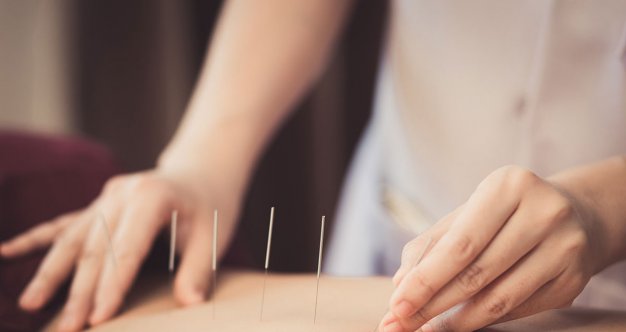Acupuncture tends to elicit strong opinions — some think it’s quackery, others swear by its powers to heal. Now, a new study, published in the Journal of the American Medical Association, found that when it comes to dry mouth — which can occur as a result of radiation to the head and neck damaging the saliva glands — acupuncture can offer patients relief.
“I think with this study we can add acupuncture to the list for the prevention and treatment of xerostomia [dry mouth] and the guidelines for the use of acupuncture in the oncology setting should be revised to include this,” said Dr. Lorenzo Cohen, director of the Integrative Medicine Program at MD Anderson Cancer Center, who led the study, in a statement about the findings.
Read MoreWhat, Exactly, Is Acupuncture?
Acupuncture is an ancient Chinese practice that involves inserting very thin needles into strategic points in the body — called "acupoints" — in an effort to stimulate nerves, muscle, and connective tissue. The practice has been touted as a treatment for a number of issues for years. But because there’s no solid science behind how or why — or even whether — it works, the debate regarding its legitimacy continues.RELATED: Acupuncture Promising for Pain Relief from Some Breast Cancer Treatment
The study did not show the exact scientific mechanism that makes acupuncture effective for helping to alleviate dry mouth, but did mention previous research showing that “tissues surrounding the parotid [salivary] glands experienced a significant increase in local blood flux after acupuncture.”
RELATED: Skin Care: Dealing With the Side Effects of Radiation
Alternative Medicine in Combination with Conventional Treatment — an Integrative Approach
Acupuncture — along with Reiki, herbal supplements, and other non-medical therapies — are what experts consider “alternative medicine.” Alternative medicine often gets a bad rap, but it’s important to note that this stems from people who exclusively approach their healing with these practices while foregoing traditional medicine (doing so can have life-threatening implications).
RELATED: Nearly 40% of Americans Believe Alternative Medicine Can Cure Cancer
But using healing practices alongside conventional medicine is a joint approach called "integrative medicine" and this can have positive results. Experts say, for instance, that marijuana, another form of alternative medicine, can help alleviate pain and anxiety during cancer treatment, but emphasize that it can’t actually treat the cancer. The same goes for acupuncture.
RELATED: The Difference Between Integrative Medicine and "Alternative Medicine"
Dr. Brian Berman, director of the Center for Integrative Medicine at University of Maryland, explained to SurvivorNet in a previous conversation that integrative medicine "very much believes in the power of conventional medicine, but it's trying to bring in other evidence-based approaches, and to optimize people's health and well-being." Acupuncture, along with diet, certain nutrition supplements, meditation, massage therapy, yoga, and a host of other treatments and practices can all fall into that latter category of additional approaches that optimize people's health and wellbeing.
Learn more about SurvivorNet's rigorous medical review process.


